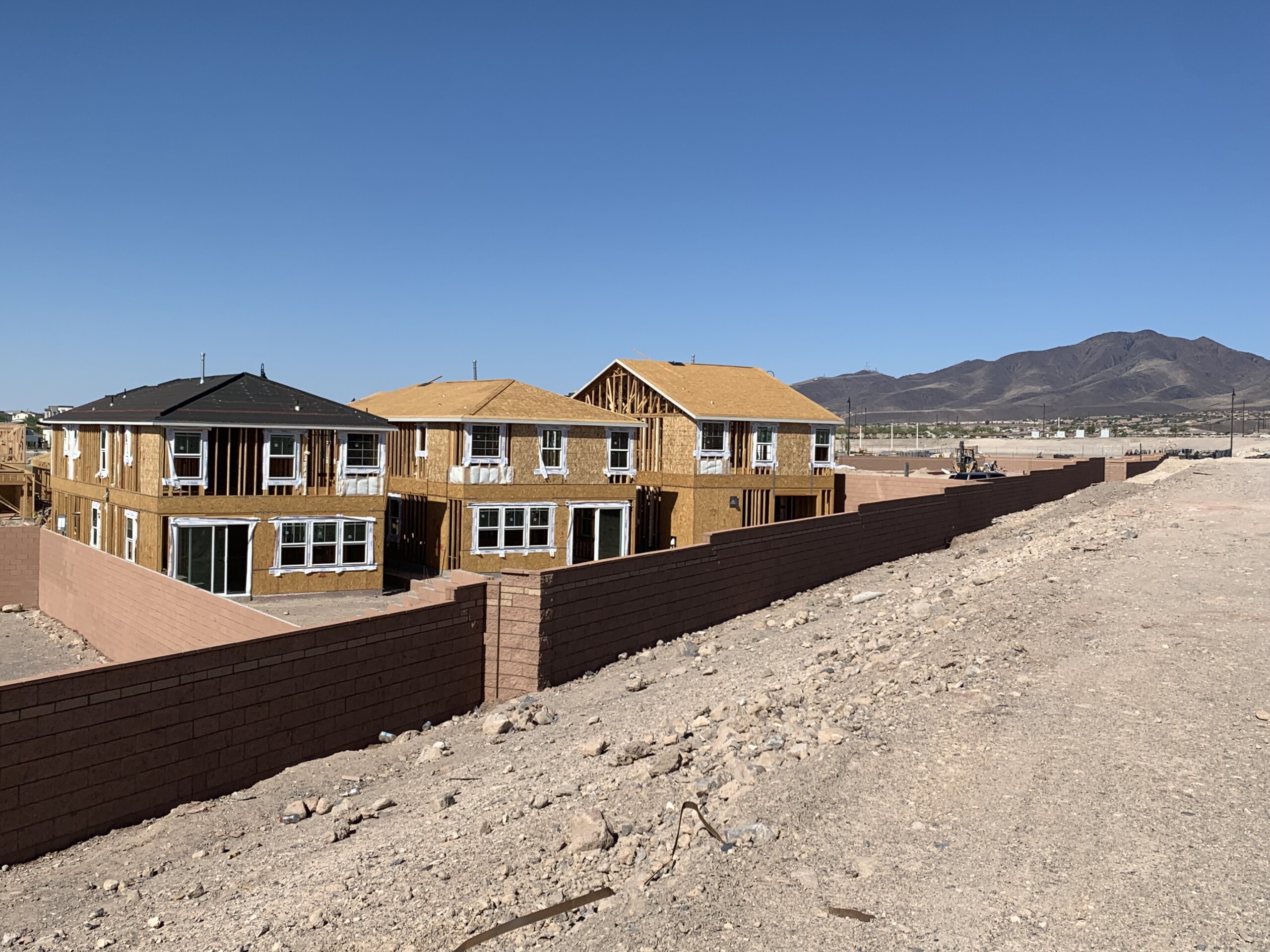Sprawl unites politicians unlike other topics in the nation’s driest state.
In the past month, Democrats and Republicans in the Nevada congressional delegation introduced legislation to sell off large tracts of public lands in rural and urban counties throughout the state. And one lawmaker in the State Legislature is pushing a resolution championing one of those efforts, urging President Trump to approve land federal sell-offs near Las Vegas that could have major implications on long-term water supplies.
The legislators’ proposals come as the Trump Administration prioritizes the very idea of selling off public lands across the west for the prospects of fast-paced real estate development. The legislative proposals don’t consider water use in any meaningful way. But they certainly imply that entities will be needing it. The concepts in both levels of governance also shows how political parties, so divided on many issues, coalesce to undermine the public interest.
The legislation poses many questions about the impacts on land and water in dry times. The proposal from Senator Catherine Cortez Masto and Rep. Susie Lee, Democrats, approves the potential sale of tens of thousands of acres near Las Vegas in some of the driest patches of the Mojave Desert. And the same can be said for Republican Rep. Mark Amodei and his proposals to sell off land in Northwestern Nevada.
In the Nevada Legislature, AJR10, sponsored by Democrat Sandra Jauregui, implores the federal government to dispose of more federal land via the legislation from the congressional delegation. This symbolic, resolute gesture will certainly get support from both sides of the aisle in the State Legislature. We are hearing that there might not even be a hearing in the Assembly and that it will go straight to the floor for a vote.
We live in a society where many people in power find public participation to be more of an inconvenience than a necessity. Robust participation is what GBWN exists to protect. While lawmakers have a right to put forth bills, that process should be accompanied by thorough discussion. In Congress, shamefully, it is not an aberration for lawmakers to hold hearings on bills that aren’t even yet publicly available. And when Congress does hold hearings, private citizens aren’t stepping up to a podium to give comment. But the friends of lawmakers are often giving testimony.
Coincidentally, the whole concept of passing federal bills to sell off public lands is about cutting out a public process that otherwise guides federal land sales, in the instance of the BLM, via the Resource Management Plan process.
Major federal land sales should first be considered in Resource Management Plans and subjected to extensive public review and participation. But congressional bills override that.
In Nevada and Utah, GBWN believes it is capricious to say that there is unbridled opportunity for private-sector growth on public lands. Why? There is not unlimited water. Nor is there money to cover the costs of sprawling. Nevada is a unique case study because a special section of law has allowed the Bureau of Land Management to sell off more than 30,000 acres of public lands since 1998 in Las Vegas. Housing prices, utility costs, road building, school funding and many other factors are not without their problems. And adding another million people to Vegas isn’t likely to fix the problem.
Ask the people of Vegas if they’d like the government to build more homes for California expats. Many of them will point you to Lake Mead.
Tell congressional offices to keep away from selling our public lands. And tell Assemblymember Jauregui to do the same.

